






I








I
CCBA Officers

Brian L. Nagle, President
Donald B. Lynn Jr., Vice President
James Doyle, Treasure
Catherine H. Voit, Secretary
New Matter Committee
Maria Janoski, Editor
Rami Bishay
Mark Blank, Jr.
Ryan Buchanan
Charles T. DeTulleo
Jennifer Fink
Andrew Lehr
Shannon McDonald
John McKenna
Kim Denise Morton
Mary Wade Myers
Sara Planthaber
Karyn L. Seace

Bill Wilson
CCBA Staff
Greg Nardi
Executive Director
Melissa Willson Communications, Events, and Marketing Manager
The Chester County Bar Association’s quarterly publication, New Matter, has been provided to Bar Association members for four decades. A valuable aspect of CCBA’s membership, New Matter aims to provide our members with information pertaining to current issues facing the practice of law, historic legal issues, continuing legal education opportunities, Chester County Bar Association activities, programs, meetings, functions, practice tips, procedures for attorneys, and items of personal interest to our membership.
The opinions expressed in this material are for general information only and are not intended to provide specific legal or other advice or recommendations for any individuals. The placement of paid advertisements does not imply endorsement by the Chester County Bar Association.

All rights reserved. No portion of this publication may be reproduced electronically or in print without the expressed written permission of the publisher or editor.


FIND

The first quarter of 2023 has vanished in a flash. The Judicial Plebiscite is complete (more on that in a moment) and the Spring Bench Bar went off without a hitch. Only three quarters to go and it seems it will be a Herculean task to accomplish all that I am bound and determined to get done during my term as your president.
I'll share an interesting little tidbit about the history preservation effort we have undertaken. The history committee, a few years back, sat in a room with key bar association members and culled through our association photographs and listed the various people pictured therein. To the members and president who led the task, thank you. Interestingly, that compilation was created prior to our current “cloud” experiment (you know, the one where we all faithfully launch our personal, professional, and financial information into the online or server or whatever stratosphere that stuff goes into) and we discovered that just maybe the computer the information was saved on, well, we might not be 100% sure where that is. I supposed this begs the question: which do you prefer, hard drives lost in basements or on a server “in the cloud” with an unknown location owned by who knows? Well, either way, we are going to figure this thing out and make sure our “history” is properly preserved. More to come in my next report on that subject.
Meanwhile, just to share a little inside scoop, I had mentioned some insane job fair idea to our new Executive Director, Greg Nardi. In talking to other firm leaders and solos, and through my own experience at MacElree Harvey, I got a sense that we are not doing the best job getting good talent to see the true value of this little gem we call Chester County. And almost literally moments after Greg told me how tough it is to host a job fair; he had sent a survey to our membership to get feedback on the subject. Fellow members, I’m pleased to report, this new ED of ours is totally awesome and we will hold our first “Chester County Legal Community Job Fair” on June 8th at the CCBA Building.
Last and of foremost concern to me at the moment, I'll get back to the Judicial Plebiscite. This is not what our forefathers and foremothers envisioned with this process. We should have pushed harder in the last bylaw change. This is too important to be passive. All candidates should be included. By the way, I can’t blame folks who didn’t participate; what benefit is there to candidates who want to run, but don’t really know the membership? That might be the very clue we are looking for: give everyone a fair shot at exposure so they don’t feel they have to stay away. We will have a draft bylaws change on this subject for consideration by the membership at the annual meeting.
Saturday, June 3 | 6 p.m.
Location: Malvern Memorial Cabin (Corner of Monument & Sugartown Rds)
Picnic starts at 6 p.m. followed by a movie at dusk!

Representation, consultation and expert testimony in disciplinary matters and matters involving ethical issues, bar admissions and the Rules of Professional Conduct
• Judge, Court of Judicial Discipline
• Former Chairman, Judicial Conduct Board of Pennsylvania
• Former Chairman, Disciplinary Board of the Supreme Court of Pennsylvania
• Former Chairman, Continuing Legal Education Board of the Supreme Court of Pennsylvania
• Former Chairman, Supreme Court of Pennsylvania Interest on Lawyers Trust Account Board
• Former Federal Prosecutor
• Selected by his peers as one of the top 100 Super Lawyers in PA and the top 100 Super Lawyers in Philadelphia


• Named by his peers as Best Lawyers in America 2022 and 2015 Philadelphia “Lawyer of the Year” Ethics and Professional Responsibility Law and Legal Malpractice Law
1500 Market Street, East Tower, Suite 1800 • Philadelphia, PA 19102 (215) 751-2863

Emily* entered the red brick building on Gay Street in West Chester where her three-year-old daughter, Cory*, was playing. Cory ran to hug Emily, and began chattering about her afternoon. Cory had visited with her father, Liam*, for a couple of hours. She adores her father, and doesn’t understand why she hasn’t seen him for so long. She doesn’t know about Liam’s criminal charges for drug possession, assault, and endangering the welfare of children, or about the Final Protection from Abuse Order which protects Emily and Cory. Cory only knows that, for two hours every Saturday afternoon, she is her father’s entire world.
Nearly all studies focused on the importance of parent/child contact have found that parent-child contact is a vital part of childhood development. Research has shown that children who spend more frequent or regular time with a non-custodial parent have fewer behavioral problems, lower levels of depression, and improved overall well-being.1

Conversely, the American Psychological Association cautions that the consequences of inadequate contact persist through adulthood. Those with less parental involvement reported more negative mental and physical health issues than those with more parental involvement.2
Sometimes, due to substance abuse, mental health problems, or other safety concerns, it is unsafe for a parent to be left unsupervised with their child. In those cases, the court can promote parental contact while ensuring the safety of the child by requiring a parent’s custody time be supervised. Chester County Hearing Officer Julia MalloyGood, who spent many years as a family law attorney and custody conciliator, points out that many of the cases necessitating supervision involve parental substance misuse. “Supervised custody provides children with a safe environment and allows parents, who are doing the right thing and working on whatever they’re struggling with, to continue seeing their children while they get help,” says Catherine Voit, a West Chester family law attorney.
*Names changed for privacy reasons.
1See, e.g., https://www.acf.hhs.gov/sites/default/files/documents/cb/im2002. pdf.
2 https://www.apa.org/news/press/releases/2004/03/parental-support.
3 23 Pa. C.S. § 5322(a) (2023).
4 Judge Platt’s initiative is consistent with national recognition of the issue. See 42 U.S.C. § 669b (2023) (requiring the Administration for Children and Families to provide program grants to states aimed at facilitating child contact with their non-custodial parent).

Supervised physical custody is defined by the Child Custody Act as “custodial time during which an agency or adult designated by the court or agreed upon by the parties monitors the interaction between the child and the individual with those rights.”3 The Child Custody Act authorizes the court to award supervised physical custody if it feels it will be in the best interest of the child.
In some cases, the parents have someone in their life to serve as a supervisor, like a trusted family member. In other cases, professional agencies are appointed to serve as the supervisor due to the unavailability or unwillingness of a suitable family member or friend.
In cases where professional supervision is needed, cost is a barrier. Professional supervision can cost more than $100/hour. Parents, in crisis themselves, often cannot afford this cost, especially over time. As Voit points out, “For some, supervision is a long-term arrangement, which can be cost-prohibitive for many people. But if supervision is the only relationship they have with their children, there has to be a resource available for them.”
What happens when there are significant safety concerns, and the parent requiring supervision is unable to afford professional supervision services? There lies a substantial, systematic gap, ultimately to the detriment of children who cannot see their non-custodial parent.
Fortunately, in Chester County, we have a compassionate and dedicated legal community who, along with volunteers, created the West Chester Area Child Access Center (“WCACAC” or “Access Center”) as a solution to this substantial barrier.
Spearheading the effort to create WCACAC in 2006 was Chester County Family Court judge The Honorable Katherine B.L. Platt. “Judges and hearing officers were ordering that parents could only see their children if they were supervised. Family members and other ‘partisans’ may not be appropriate supervisors, plus it is a lot of pressure and responsibility on one person. If a parent needs supervision, it is easy to write that in an order, but making it happen is not so easy. . . . In essence, there was a vacuum created,” says Judge Platt.
To address the lack of accessible supervision resources,4 Judge Platt intensively researched models of effective supervised custody programs. She also met with the Children’s Rights Council (“CRC”), based in Washington D.C., which published a guide for operating a child access
Continued on page 8
Continued from page 7
center. Using the CRC’s model, Judge Platt created our county’s first safe custody exchange program at the Church of the Holy Trinity in West Chester. Judge Platt arranged for CRC staff to train local volunteers, including members from the legal community.
In 2007, Access Center Director Sandra Fischler recruited volunteers and expanded services to include supervised custody on Saturday mornings. For the duration of its time at the church, the Access Center was entirely volunteer operated. Judge Platt reflects on the Access Center’s reception: “It was embraced by the community. The need was so great that we could not accommodate everyone who needed assistance.”
After nine years of diligent and committed assistance in running the Access Center, Sandra Fischler retired. Thankfully, Angela Smallwood, a therapist in West Chester, used her own practice and expertise to formalize the program into its current form. Specifically, she recruited college student volunteers who would not only provide free physical supervision, meaning being physically present but uninvolved in the physical interaction, but also therapeutic supervision, which is physical supervision with a professional trained to re-direct and teach parents how to appropriately respond to and interact with their children.5 The Access Center ceased operating in early 2022. Hearing Officer Julia Malloy-Good reflects on this time, saying “the [Center] would not have become what it is without Angela’s generosity and we want to express our sincere thanks for many years of service.”
Like with any community resource, WCACAC needed to evolve to continue serving our community, especially once the previous Access Center model and space were no longer available. Nationally, incidences of violence infiltrated the news. Access Center leadership concluded that additional security was necessary to achieve the Center’s ultimate goal, i.e., to provide a safe place for children to interact with their parents. The current members of the Access Center’s Board (Doug Olshin, Rochelle Grossman, Cheryl McCallin, Randy Hess, Rachel Houseman, and Hearing Officer Malloy-Good) have worked tirelessly to re-develop the Access Center based on the community’s changing needs.
Fortunately, we live in a county that understands the need for children to have a safe place to interact with
their parents. Hearing Officer Malloy-Good explained the objective of the new Access Center is to help each individual family meet its own goals. “Ultimately, we want every parent needing support to no longer require it. Every case will be different, but we want to foster a relationship and promote the child’s best interest in a safe way.”
County government has been supportive of the Access Center’s transformation from the beginning. “Chester County has always appreciated the benefits of programs such as WCACAC that are created to fulfill a need, and that, in this instance, can contribute to the wellbeing of both children and parents in a supervised visit situation,” said Chester County Commissioners’ Chair Marian Moskowitz. “This service has been well-researched and planned, is valued by our courts, and should continue.”
President Judge John Hall is very generously allowing the Center to operate out of the Chester County Justice Center to ensure a safe environment, and the Chester County Sheriff is providing security to provide peace of mind to participants. Now that the Center has overcome some logistical hurdles, the focus turns to the future. The Board is looking for a part-time director who will be responsible for the Center’s operation, including volunteer training. With the support of the Chester County legal community, the Access Center hopes to be operational as soon as possible.
Throughout its history, the Access Center’s success has relied on the generosity and commitment of community volunteers, and this current manifestation is no different. Specifically, its family capacity is dictated by the number of Visitation Monitors, who are responsible for creating a calm and happy environment for the children during the 2-3 hour period of custody. All volunteers will receive training and can sign up for as many shifts as they are able.
In expressing hope for the future of the Access Center, Judge Platt reflects that, “except for the extraordinary situation where a child’s physical or mental health is in danger by contact with a parent, I want to encourage safe contact between both parents and the child wherever possible.” The legal standard for custody law in Pennsylvania is what is in the best interest of the child. The hope and belief is that the legal community will continue the tradition of volunteerism to promote that best interest by creating a safe place for children to foster a healthy relationship with their parents.
If anyone is interested in volunteering, providing financial support, or for the Director job description, please contact Cheryl McCallin (cheryl@mccallinlaw.com).
Attorneys acquire a unique collection of knowledge and experience over their years of practice. When attorneys decide to retire from active practice, those years of experience can now be used to serve those who otherwise cannot afford counsel.

In an effort to support pro bono work and to bridge the gap in accessing justice for those experiencing poverty, the Supreme Court of Pennsylvania adopted Pennsylvania Rule of Disciplinary Enforcement 403 in 2018, creating “emeritus” attorney status. Rule 403 allows attorneys who are on retired status to continue to practice law by volunteering with a legal aid organization without the cost of maintaining an active status.
As of March 2023, Pennsylvania has 36 emeritus attorneys enrolled in the program, according to Dana Belella, Assistant Director of the Disciplinary Board of the Supreme Court of PA.
To qualify for emeritus status, the attorney must be on retired status and have completed at least six hours of continuing legal education the year prior to applying for emeritus status. When completing the application, a qualifying legal aid organization (including Legal Aid of Southeastern PA) submits a form in support of hosting the attorney. The only fee to maintain emeritus status is the
application fee of $35. LASP staff can assist attorneys’ access to continuing legal education to satisfy the requirement and with completing the application. Emeritus attorneys do not need malpractice insurance; they are covered under the legal aid organization’s professional liability insurance.
Staff at legal aid organizations struggle to meet the growing demand of people in our community who cannot afford legal services. Attorneys with emeritus status can assist by providing essential civil legal services to victims of domestic violence, families facing eviction, seniors, and many other vulnerable people. Whether retired attorneys want to continue with their same practice area or use their foundation to try something new, they can leverage their years of knowledge and experience into giving back to their community by providing this much needed service.
To read more about Emeritus Status, visit padisciplinaryboard.org/for-attorneys/resources and scroll to EMERITUS ATTORNEYS, or visit lasp.org/pro-bono.
If you are interested in volunteering with Legal Aid of Southeastern PA and applying for Emeritus status, please contact Brian Doyle, LASP Staff Attorney and Chester County Pro Bono Coordinator, at bdoyle@lasp.org or 610-436-4510.
I have been blessed with being Chair of the Bar Sail Committee for over 10 years. As Chair of the Bar Sail Committee, I don’t do much other than promote the event. The Bar Association staff does all the work and they do an excellent job arranging this. I realized many of you may have questions about this event and therefore have never attended. So, I’ll try to answer a few questions that you might have.
The Bar Sail’s only intended purpose is to have fun. You cannot get any CLEs on Bar Sail, we are not honoring anyone and there aren’t any awards. You don’t even have to dress in courtroom attire. I have often heard other county Bar Associations are envious of the level of camaraderie the Chester County Bar Association enjoys between its members and the bench. This event is one of the reasons why.
The Bar Sail started years ago when several of the sailors in the Bar Association had the bright idea of introducing other members of the Bar to sailing. It’s no fun just sailing around in circles; you have to sail to someplace. A tradition was born and since then every year the Skippers get together over the winter and decide where the destination should be. This year we will be going back to Annapolis, Md. In years past the destination has been Inner Harbor Baltimore, St. Michaels, Kent Narrows and Great Oaks Landing. There have been other destinations but that was before my time, and I don’t know if we are allowed to go back to some of those places.
You don’t need to own a boat or know how to sail. I don’t own a boat, and it is questionable whether I know how to sail. For almost 20 years I have somehow managed to convince the charter company that I know how to sail though. Hey, I’ve never damaged a boat. Off the record, that incident at the fuel dock wasn’t my fault. Several Skippers charter boats and many of us have room for a few more people. All you have to do is sign up and the Bar staff can find you a spot on someone’s boat.
This is a two-day event on a Thursday and Friday in June. This year it will be June 15th-16th. Beware, you may have to wake up early Thursday morning to get to wherever your Skipper’s boat is leaving from. I charter out of Rock Hall, Md. which is around 2 hours from West Chester. My boat leaves the dock around 10:00. Depending on the winds it can take 2-3 hours to get to Annapolis. That’s right, you will have to sit on a boat traveling at 5-7 mph with nothing to do except: relax, talk with friends new and old from the Bar Association, help sail if you want to, or just do nothing. Look at the bright side, clients can’t get a hold of you.
Once we get to Annapolis there will be a party on the dock. Food and drink largely become communal as you visit other boats. It’s nothing short of a great time. After the party we will go to dinner at a restaurant nearby. The menu will include crabs, but for those of you who don’t like crabs or think they are too much work there are always plenty of other options. After dinner we will all enjoy a night out on the town. Annapolis has a lot of fun places to go to.

If you are not into sailing several Skippers take power boats. Spouses are welcome but check with your Skipper. Some people attend and don’t come on a boat at all. You can drive down for the party/dinner and drive home in the morning. Do you have a busy schedule? Not everyone has time to take two days off. Several people will crew one way and get a ride back from Annapolis. Life is too short; I prefer to put a sign on my office door for several days, “Gone Sailing.”
The sail back to Rock Hall is usually a little more subdued than the sail to Annapolis. The music is not as loud and there is much less banter. Sailing back on Friday, with a crew suffering from their own selfinflicted ailment, sure beats working.
See you on the water.
Register today: 610-692-1889
chescobar.org/LRSmembers
Each year, we receive over 3,000 calls seeking an attorney referral through our Lawyer Referral Service hotline. We have greatly expanded the advertising and marketing of this program in order to serve the citizens of Chester County, and have experienced a 40% increase in paid referrals since last year.

"LRS is an invaluable tool and resource for any practice Whether just starting out or after decades of experience, the amount and quality of the referrals from LRS provide a significant revenue source for relatively minor cost The referrals are well screened and more often than expected turn into a valuable client relationship I am impressed with the program’s ease of use and support as well. "
- John Gagliardi, Esquire, Wetzel, Gagliardi Fetter & Lavin, LLCRegistered attorneys receive referrals on a rotating basis for panels of your choice, including:

Administrative Law
Business Tax Law
Civil Litigation
Crime Victims
Criminal Law
Elder Law
Employment Law
Estate Law
Family Law
Individual Rights Liability Law
Intellectual Property Law
Mediation/Arbitration
Real Estate Law
“Nor, to my knowledge, have any other lawsuits (frivolous or otherwise) by or against the former President been commenced. But is there more litigation to come?”
—The Blank Page, New Matter, 4th Quarter 2022
The answer to that question is a big fat “Yes.”
In Donald J. Trump v. Hillary R. Clinton et al.1, United States District Judge Donald M. Middlebrooks, in a scathing opinion, ordered the case dismissed and, subsequently, sanctioned the former president (hereinafter, “Mr. Trump” or “Plaintiff”) and his lead attorney, Alina Habba, Esquire, and Habba Madeiro and Associates, jointly and severally, in the amount of $1,004,263.622. The suit was commenced on March 24, 2022. On Defendants’ motion to dismiss, Plaintiff amended the Complaint; the Amended Complaint contained 819 numbered paragraphs over 193 pages, named 31 defendants, 10 “John Does” (described


as fictitious and unknown persons) and 10 “ABC corporations,” the latter being identified as fictitious and unknown entities.
Plaintiff’s overall theory of the case was set forth in the first 527 paragraphs of the initial 118 pages of the Amended Complaint. In short, Mr. Trump alleged that the Defendants “. . . acting in concert …maliciously conspired to weave a false narrative that their opponent, Donald J. Trump, was colluding with a hostile foreign sovereignty. The actions taken in furtherance of their scheme - falsifying evidence, deceiving law enforcement, spreading disinformation [sic] through the media and exploiting highly sensitive data sources - are so outrageous that even the events of Watergate pale in comparison.” Amended Complaint, Paragraph 1. (The next 818 paragraphs of the amended pleading were similar in texture.)
The Amended Complaint contained 16 counts: violations of RICO on theft of trade secrets, obstruction of justice and wire fraud (Count I); RICO conspiracy (Count II); injurious falsehood (Count III); conspiracy to commit injurious falsehood (Count IV); malicious
prosecution (Count V); conspiracy to commit malicious prosecution (Count VI); violations of the Computer Fraud and Abuse Act (Count VII); theft of trade secrets (Count VIII); violations of the Stored Communications Act (Count IX); various conspiracy charges and theories of agency, including respondeat superior (Counts X through XVI).
The District Court dismissed the Amended Complaint and the entire action with prejudice as to all of the Defendants, with the exception of the John Does, the ABC corporations and the United States Government.3 Regarding the latter three, the suit was dismissed without prejudice.
In his 65 page well written, thoroughly analytical and excellently reasoned opinion, Judge Middlebrooks initially focused on the pleadings. Rule 8 of the Federal Rules of Civil Procedure, as the learned jurist observed, requires that a complaint (or, as in the instant case, an amended complaint) filed in Federal Court contain a short and plain statement of the claim “showing that the pleader is entitled to relief.” Fed. R. Civ. Pr. 8(a)(1). Each allegation must be stated in numbered paragraphs and limited as far as practicable to a single set of circumstances. Fed.
R. Civ. Pr. 10.
District Judge Middlebrooks noted that the Amended Complaint is “neither short nor plain, and it certainly does not establish that plaintiff is entitled to any relief.” Trump v. Clinton, supra,
Order on Motions to Dismiss, 4.
This writer has perused the Amended Complaint. Many of the 819 paragraphs contain multiples of sentences, consisting of what our English grammar teachers would have referred to as “run-on.” Perhaps they can be categorized as “Faulkner sentences”. (Although William Faulkner, despite his lengthy sentences and paragraphs, wrote in acceptable grammar.) There were numerous quotations; and no fewer than 293 footnotes with references to various public reports and findings. As stated by the District Judge, annotations are inconsistent with Rule 8. “But if a party chooses to include such references, it is expected that they be presented in good faith . . . That is not the case here.” Id.,5. The Court described the Amended Complaint as a “quintessential” shotgun pleading. “Such pleadings waste judicial
3The Government was substituted for the federal defendants.
4For a definition of shotgun pleading, see Weland v. Palm Beach County, 792 F.3d 1313, 1321-1323 (11th Cir. 2015), cited in the Order on Motions to Dismiss, 7-8.
resources and are an unacceptable claim for relief.4 Id.,7.
Subsequent to addressing the Amended Complaint (which, in and of itself, may have justified a dismissal), the Court proceeded to explain why dismissal was appropriate, not only under Rule 8, but pursuant to Rule 12(b)(6); that is, failure to state a claim upon which relief can be granted.
As stated by the Court at the outset: “ . . . [T]he claims presented in the Amended Complaint are not warranted under existing law. In fact, they are foreclosed by existing precedent, including decisions of the Supreme Court.” Id.,4.
The Court concluded that Plaintiff’s RICO claims were barred by the statute of limitations (commencing when Mr. Trump knew or should have known of the alleged violations); however, “even if the Plaintiff’s claims were timely, they still fail at every step of the analysis.” Order on Motions to Dismiss, 30. And with respect to the balance of Plaintiff’s claims, the Court thoroughly and succinctly analyzed how and why each failed to state a cause of action.
Now, for the good part.
The sanctions levied on Mr. Trump and his lawyers were premised on two grounds: first, Rule 11 of the Federal Rules of Civil Procedure; second, a court’s “inherent power.” As for Rule 11, the Court, citing Massengale v. Ray, 267 F.3d 1298 (11th Cir. 2001), noted that “sanctions are properly assessed (1) when a party files a pleading that has no reasonable factual basis; (2) when the party files a pleading that is based on a legal theory that has no reasonable argument to change an existing law; or (3) when a party files a pleading in bad faith for an improper purpose [emphases mine].” “Here, all three are true.” Trump v. Clinton, Order Granting Motion for Sanctions, 4. The pleadings in this case, observed Judge Middlebrooks, contained factual allegations that were either “knowingly false or made with reckless disregard of the truth.” Id.,5. To put it mildly, “the Amended Complaint was, in its entirety, frivolous.” Id.,9. The second basis for sanctions is a court’s inherent power, which includes the ability to assess fees and costs against the litigant, the latter’s lawyer (or lawyers) or both, when either has acted “in bad faith, vexatiously, wantonly, or for excessive reasons.” Order on Sanctions, 5; citing Chambers v. Nasco, Inc., 501 U.S. 32, 44-46 (1991).
The Court distinguished Rule 11 from the inherent
Continued on page 14
Continued from page 13
power: “Rule 11 is backward looking, limited to pleading and motion abuse.” The purpose of the inherent power to sanction a party is to “vindicate judicial authority without resorting to contempt of court and to make a nonviolating party whole.” Id.,6. Moreover, the inherent power serves as a deterrent and extends to the full range of litigation abuses, and (or) where the attorney’s conduct is so egregious that it could have only been committed in bad faith. Roadway Express, Inc. V. Piper, 447 U.S. 752 (1980).
In the instant case, Judge Middlebrooks comments: “Here, we are confronted with a lawsuit that should never have been filed, which was completely frivolous, both factually and legally, and was brought in bad faith for an improper purpose.” Order on Sanctions, 6. The judge took judicial notice that Plaintiff is a prolific and sophisticated litigant, who repeatedly employs the courts to seek revenge on political adversaries.5 “He is the mastermind of strategic abuse of the judicial process and he cannot be seen as a litigant blindly following the advice of a lawyer. He knew full well the impact of his actions. As such . . . sanctions should be imposed upon Mr. Trump and his lead counsel, Ms. Habba.” Id.,6.
Judge Middlebrooks points to “a pattern of abuse of the courts,” and discusses it (as opinionated as his Opinion is) while focusing on specific cases: Trump v. Pollitzer Board; Trump v. New York Attorney General; Trump v. Twitter; Trump v. CNN.6
It is axiomatic that in any award for attorney’s fees and costs (punitive or otherwise), those fees and costs must be reasonable and shall be carefully scrutinized. Blum v. Stenson, 465 U.S. 886 (1984); Hensley v. Eckerhart, 461 U.S. 424 (1983); Rode v. Dellaciprete, 892 F.2d 1177 (3rd Cir. 1990). And the party seeking fees has the burden of proving that the requested fees and costs are reasonable. Rode, 1183. In Trump v. Clinton, the District Judge analyzed Defendants’ fee applications to determine the reasonableness in light of (a) the attorneys’ hourly rates; (b) the time spent; and (c) the lodestar, including, among other things, the block billing entries. All of the objections lodged by Plaintiff and his counsel were overruled. The total sanction: over one million dollars.
Mr. Trump and his attorney have appealed the Dismissal and both Orders for Sanctions to the Eleventh
Circuit Court of Appeals. A bond was posted with the District Court in the amount of $1,004,263.62. After having read the Amended Complaint, the Dismissal and the two Sanction Orders, I believe that it is safe for me to predict the outcome of the appeals: AFFIRMED in toto. If this turns out to be correct, then there will, most likely, be another appeal (a cert petition) to the SCOTUS. Will at least four of the nine vote to grant? That one I will not (and cannot) predict.
Well, the class is dismissed, except for Alina and Donald. “You must stay after school in detention. That is your punishment (sanction) for your conduct (albeit, misconduct). This will teach you a lesson.” Or will it?
Although Pennsylvania has no Rule 11, there is 42 Pa.C.S. Section 2503: Right of Participant to Receive Counsel Fees. Aside from the statute, does the State Court have an inherent power to impose sanctions? I think so. See: Shiedmakers Enterprises v. Beechwood et al., 34 Chester County Reports 394 (1986), in which The Honorable Lawrence E. Wood imposed, as “taxable costs,” the sum of $30,000 against attorney G. Eugene Beechwood, Jr. (to the exclusion of the other Beechwood defendants): “Based on the record, it appears to me that G. Eugene Beechwood was arbitrary and vexatious, . . . and should be taxed $30,000 as costs, representing plaintiff’s attorneys fees.” Shiedmakers, Conclusions of Law, No. 6, 34 Chester County Reports 394, 402. Accord, Decree Nisi, Id.,403.
VI. Conclusion Attorney Alina Habba is a graduate of Widener University Law School. Will she receive the year’s Alumni Award? Will she appear on the Law School’s website under notable alumni? “Citizens [lawyers], hear me out, this could happen to you.” The Kingston Trio, Introduction to Charlie on the MTA (recorded in 1959).
In my last article, I said that Donald J. Trump v. United States of America7 could be an introductory chapter to a text on federal jurisdiction. (See: The Blank Page, New Matter, 4th Quarter, 2022.) Trump v. Clinton could be another chapter (maybe two). Perhaps these cases will be the start of a treatise: Trump on Federal Practice; Forward by Alina Habba, Esquire, Preface by Judge Aileen M. Cannon.
5The judge does not specifically employ the term “judicial notice.” This is my own observation and interpretation.
6See: Trump v. Clinton, Order for Sanctions, 21-34. The Judge’s focus was probably on the cases in which he thought that the litigation abuses were most pronounced. But there are potentially dozens (or even scores) more, including (but far from limited to) those cases in Federal and State courts challenging the 2020 election.
7U.S.D.C. Sou. Dist. Fl., 22 cv-81294-AMC [Aileen M. Cannon], reversed, CA 11th Cir., No. 22-13005 (2022).
Law Firm Banking
Nota by M&T Bank offers a unique digital banking experience designed for solo and small law firms. Supported by a dedicated banking team who works specifically with attorneys and their law firms. With Nota, you can confidently manage your firm’s business accounts and client funds right within the platform using real-time bank data.

Provides valuable practice management features. Set up categories with income & expense and client matters for tracking


Nota
works with strategic partners to provide exclusive


Pennsylvania will soon be joining the ranks of the majority of states in the nation requiring business entities organized under its laws to file annual reports to confirm their continued existence. Pennsylvania Act 122 took effect on January 2, 2023 (“Act 122”), repealing Pennsylvania’s unique (and often overlooked) decennial report requirement, and replacing it with a reporting system requirement that aligns with the leading approach taken throughout the United States – filing an annual report.
Previously, business entities/associations were only required to file a report with the Pennsylvania Bureau of Corporations and Charitable Organizations (“Corporation Bureau”) on a rolling ten-year basis (2001, 2011, 2021, etc.) unless the entity/association had made certain filings with the Corporation Bureau within the previous ten-year cycle. Now, new Section 146 will require an annual reporting requirement for Pennsylvania business entities/associations. This aligns with the approach taken by virtually almost every other state in the country.
The new annual reporting requirement will apply to (i) all registered foreign associations and (ii) the following Pennsylvania domestic business entities:
• business corporations;
• nonprofit corporations;
• limited liability partnerships;
• electing partnerships that are not limited partnerships;
• limited partnerships (including limited liability limited partnerships);
• limited liability companies (LLCs);
• professional associations;
• business trusts and
• all registered foreign associations.
When

2024. However, Act 122 includes a phase-in period of administrative penalties for failing to file annual reports until 2027 (see below for further discussion).
What Are the Filing Deadlines?
Type of Annual Report Business Entity Filing Deadline
For-Profit & Nonprofit Corporations
LLCs
All Others
What Information Will the Annual Report Include?
The annual report will include the following:
• business name;
• jurisdiction of formation;
• registered office address;
June 30
September 30
December 31
• name of at least one director, member or partner;
• names and titles of the principal officers;
• address of the principal office; and
• entity number issued by the Pennsylvania Department of State.
What is the Cost of Filing the Annual Report?
Type of Business Entity Fee
Nonprofit Corporations
$0.00
All Others $7.00
Can Annual Reports be Filed Online?
Yes, annual reports can be filed online at Business Filing Services: https://file.dos.pa.gov.
What Are the Consequences of Failure to File an Annual Report?
Act 122 includes a phase-in period of administrative penalties for failing to file annual reports until 2027. Beginning in 2027, entities that fail to file annual reports will be subject to administrative dissolution/termination/ cancellation.
If a domestic filing entity fails to file its annual report and finds that it has been dissolved/terminated, it may file an application for reinstatement, which must be accompanied by the required reinstatement fee and a fee for each delinquent annual report that was not previously paid. On the other hand, once a foreign registration has been terminated, the foreign association may not cure retroactively by reinstating, but instead must reregister by submitting another Foreign Registration Statement. If another entity has taken the name of the entity seeking reinstatement, the entity that has taken the name may keep the name and the entity seeking reinstatement must choose a new name.




Matthew C. Cooper is an attorney at MacElree Harvey specializing in business and corporate law. He counsels businesses of various sizes and industries through all stages of the business life cycle, including representing management and boards of directors by helping them stay compliant with the ever-changing landscape of corporate law. Matthew frequently represents businesses in private financings and mergers and acquisitions, and is a trusted adviser to lenders and borrowers in commercial lending transactions. If you have any corporate or business law needs, please contact Matthew C. Cooper at (610) 840-0279 or mcooper@macelree.com.

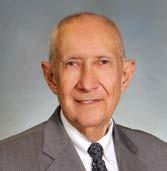
1
According to media reports, it is the first time in the history of the United States of America (USA), that a President of the USA has been indicted by a grand jury and subsequently arrested. In this case, former President Donald John Trump, the 45th President of the United States, was indicted on Thursday, March 30, 2023, by a Manhattan, NY, Grand Jury. He was arrested Tuesday, April 4, 2023, on a 34 count indictment of:

“NY CLS Penal § 175.10
§ 175.10. Falsifying business records in the first degree
A person is guilty of falsifying business records in the first degree when he commits the crime of falsifying business records in the second degree, and when his intent to defraud includes an intent to commit another crime or to aid or conceal the commission thereof.
Falsifying business records in the first degree is a class E felony.” (Cited from Lexis Nexus on-line database)2 Since many of our readers may follow this case, it seems important to look at the charges and the laws that may
apply. The first obvious look is at the above law that is used in the indictment. The law has never been used to accuse a sitting or former President of the USA. It also is classified as a “class E felony.
“NY CLS Penal § 55.10
§ 55.10. Designation of offenses
1. Felonies.
(a) The particular classification or subclassification of each felony defined in this chapter is expressly designated in the section or article defining it.
(b) Any offense defined outside this chapter which is declared by law to be a felony without specification of the classification thereof, or for which a law outside this chapter provides a sentence to a term of imprisonment in excess of one year, shall be deemed a class E felony." (Cited from Lexis Nexus on-line database and only includes above subsection) And finally to the actual indictment. Unfortunately the full document is 16 pages long and exceeds the space allowed for our publication. However, I am including pages 1-2 and the last page of the document below for your review. (See https://en.wikipedia.org/wiki/File:Donald-J.-TrumpIndictment.pdf for the full 16 pages of the indictment.)3
1Initially, this article is being written on Sunday, April 9, 2023. You will not see it until May 2023.
2Article 175 Offenses Involving False Written Statements (§§ 175.00 - 175.55).
3Article 55 Classification and Designation of Offenses (§§ 55.00 - 55.10).

Continued from page 19

December 5, 2017.
Please note that all of the alleged dates of violation are in 2017. Former President Trump was sworn into the office of the President of the USA on January 20, 2017.
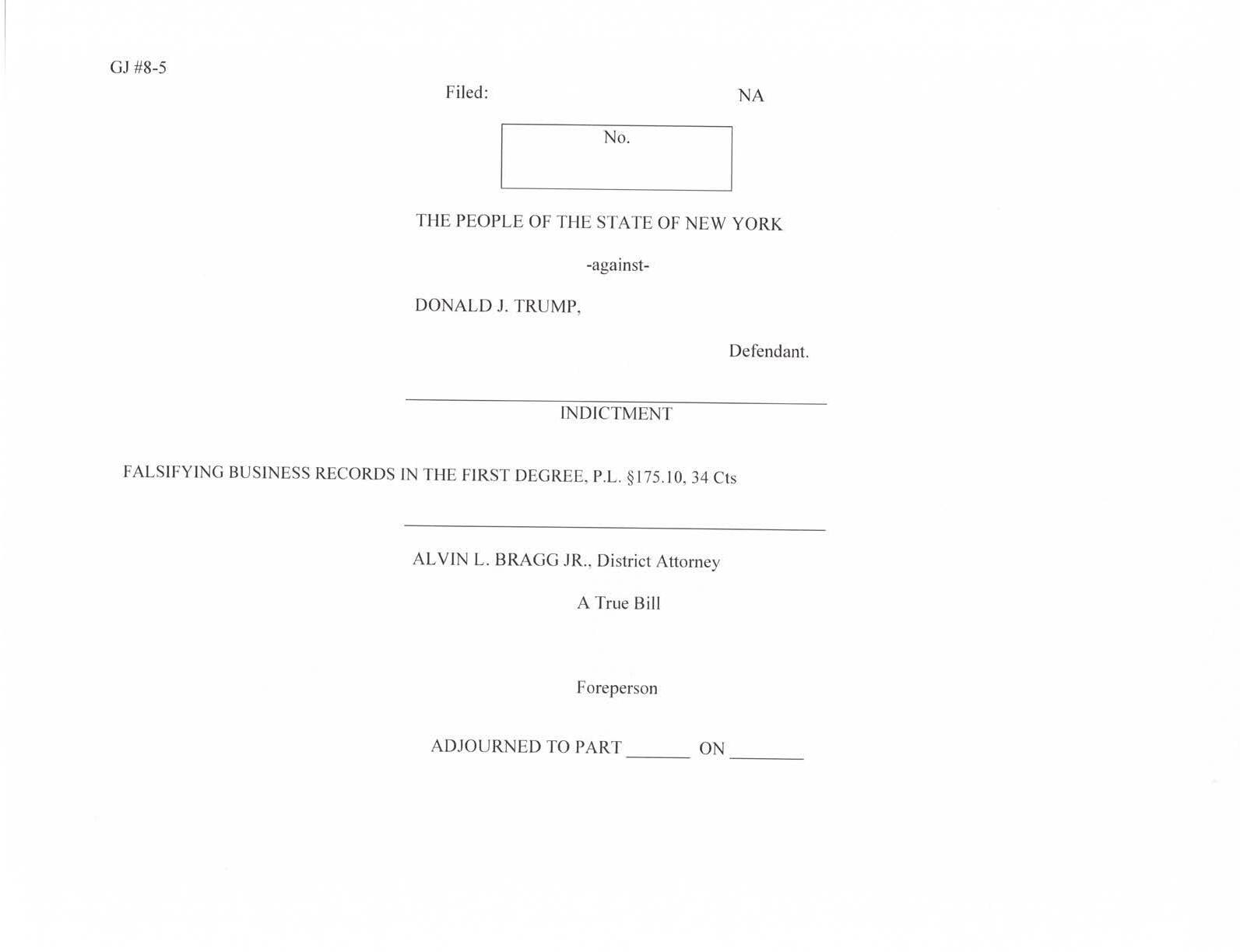

• The Chester County Legal Community Job Fair will take place during the morning of Thursday, June 8th at the CCBA building. Bringing together job seekers and job providers in the legal community, we hope that this will assist our member firms both large and small.
As spring begins and the days grow longer, many people feel a sense of potential. While this past winter was not particularly cold compared to others in the past, warmer weather and the ability to spend more time outdoors can feel like a godsend. Flowers are blooming, birds are singing, and in many cultural traditions, Spring brings a sense of rebirth and renewal. For the CCBA, the Spring Bench Bar Conference on April 6th at the Desmond Hotel was the unofficial kick-off of our busy spring schedule. Over 100 attendees were able to take advantage of some great CLEs presented by our Judges from the Chester County Court of Common Pleas, other county officials and hearing officers, and our other great presenters.
By the time of this printing, our April Member Appreciation Week will have taken place, highlighted by free headshots for our members, an axe throwing happy hour for our Young Lawyers, and a New Member Breakfast to welcome and inform the newest members of the association.
The CCBA has a tremendous amount of energy in our other upcoming events:
• Our Chester County Bar Foundation’s Annual Key Gala will be held on Thursday, May 4th at the Downingtown Country Club. This is our Foundation’s only major fundraiser of the year and seeks to raise money to support local charities like the Domestic Violence Center of Chester County, Legal Aid, and the Crime Victims’ Center of Chester County – just to name a few. Last year, we were able to give away over $150,000 to many charities throughout the county in part due to the great support at this event and your generosity.
• Our first annual Picnic and Outdoor Family Movie Night, hosted by the YLD, will be held on Saturday, June 3rd. This will take place in the evening at the property of the Malvern Memorial Cabin (corner of Sugartown Rd. and Monument Ave.) in Malvern.
• The annual Bar Sail will take place on Thursday, June 15th in Annapolis. You do NOT have to sail in order to join in the fun! Dinner will take place at Buddy’s Crabs and Ribs from 6-8pm that evening. Please join in the fun!
• And please save the date for the Fall Bench Bar Conference from September 28-30 at the Hyatt Regency Chesapeake Bay!
There are too many other great CLEs, happy hours, and other meetings to list here so please watch your email and check out the website.
The staff and I take great pride and pleasure in providing top-quality service to our members. We hope to talk with you or see you at an upcoming event sometime soon!
~ Come sail with CCBA ~ 2023 BAR SAIL
Thursday, June 15, 2023
Annapolis Waterfront Hotel, Annapolis, MD
Dinner: Buddy’s Crabs & Ribs from 6-8pm Captains: Reserve your slip at the Annapolis Yacht Basin

Congratulations to this year’s Vista Today’s Millennial Superstars –Brian, Elizabeth, and Ellen!
https://vista.today/tag/vista-millennial-superstars/
Lamb McErlane PC continues to expand, announcing CHAD T. WILLIAMS, Esq., has joined the firm as a partner in its Business Law department.


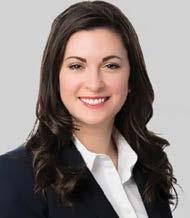

Gawthrop Greenwood litigator JOHN RAFFERTY has been elected Chair of LCH Health and Community Services, an organization that offers bilingual healthcare to individuals of all backgrounds at three federally qualified health centers in southern Chester County communities.
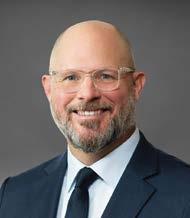

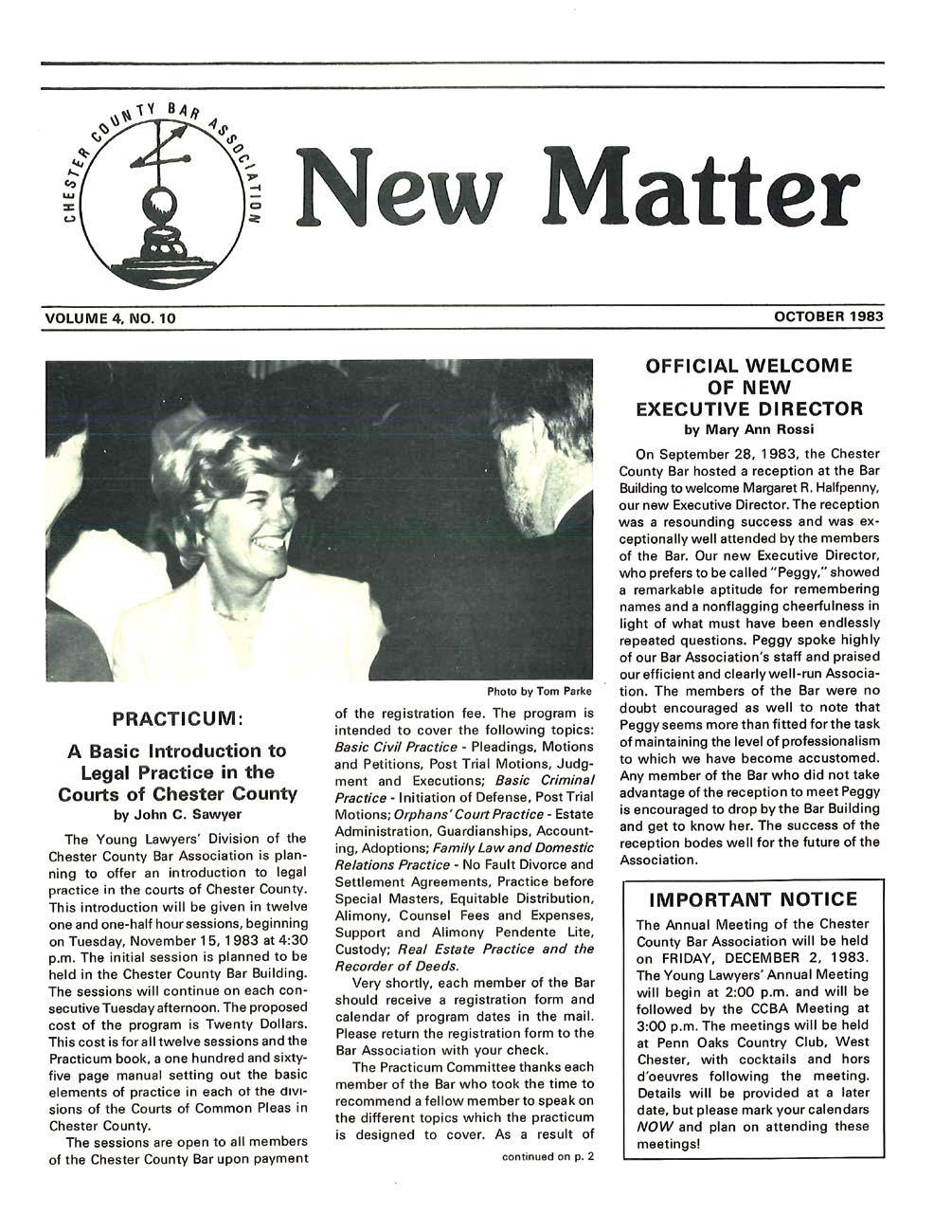
What if you could receive your total fee upfront at the beginning of an engagement while still allowing your clients to pay in installments? It sounds too good to be true, doesn't it?
With legal fee financing, not only is it possible, you can start taking advantage of this modern payment option today.
Fee financing (also known as fee funding) is an installment loan option that enables customers to purchase products or services while paying for them in smaller increments over time. By establishing a direct relationship with the merchant, the consumer can avoid using credit cards to cover the cost of the purchase and eliminate the associated fees and interest charges.
Legal fee financing is one of several alternative payment methods offered through law firms. By easing the burden of large, one-time bills, law firms can make legal services more accessible to those who need them most.
Law firms that cater to first-time legal clients report cost as the primary deterrent for customers who decide not to retain legal counsel. With 63% of Americans living paycheck to paycheck and the average hourly rate for legal representation sitting at $275 across the country, law firms must utilize the best available tools to help potential clients afford services.
There are several reasons why lawyers should consider offering legal fee financing.
Although traditional billing remains the primary choice for millions of consumers, legal fee funding solutions became popular during the pandemic. It is now a standard and expected payment option. For younger consumers, fee funding solutions will be vital in choosing which attorney or firm they engage for services. Adding legal fee financing as one of your available payment methods can make a massive difference for your firm. It can elevate your practice to reach more prospects and, ultimately, increase your profitability.
2. Improve cash flow
Fee funding also improves the consistency and reliability of your cash flow. Lawyers often hesitate to let clients pay over time because traditional payment plans can have a higher incidence of late and non-payments. Offering financing for legal fees helps mitigate the risk of both. Your firm receives the total requested amount upfront, and clients can split an
invoice into multiple payments. If a client falls behind on installment loan payments or refuses to pay, your law firm is typically not responsible.
3. Get paid faster and spend less time trying to collect
The other significant benefit of legal fee financing is that it increases how quickly you collect your total fees. When it comes to traditional payment plans, giving clients the ability to make multiple smaller payments over time means, by definition, you receive smaller deposits.
Allowing clients to use a legal fee financing option, on the other hand, means you can secure your total invoiced amount at the start of the engagement. By offering clients flexibility in payments, your firm’s lawyers can spend less time trying to collect unpaid legal fees.
4. Build stronger client relationships
Hiring a lawyer may be one of the most expensive decisions your client will ever make. When offering legal fee funding to your clients, you must clearly communicate their financial responsibility from the start. Set clear expectations as to what clients can expect to see on invoices, when they'll receive them, and how they’ll be able to pay. This will spare them from unexpected bills and ensure that you receive timely payment for your work. Most importantly, these conversations start your relationship on the right foot. Offering legal fee financing and walking clients through what that means may keep current clients coming back and increase referrals.
Adopting an online payment solution enables you to offer flexible payment options such as credit, debit, eCheck, and in some cases, legal fee financing. The result is a stabilized cash flow, happier clients, and more time to focus on work that matters to you.

Beyond the benefits listed above, the advantages of fee funding ultimately serve both you and your clients. Your client gets help with legal fees and knows precisely how much they will owe with a set number of smaller payments scheduled over an established time frame. This is an increasingly attractive option for consumers during growing economic uncertainty.
To learn more about LawPay’s fee lending solution, built specifically for the legal industry and powered by Affirm, and our commitment to supporting your firm’s success, visit lawpay.com/ccb.


Most small businesses are at a competitive disadvantage when trying to hire and retain employees compared to their larger firm counterparts. The smaller firms are typically more limited in their budgetary capabilities and unable to provide a high level of comprehensive benefit package. To attract their necessary workers, the focus for owners of small companies should be directed toward benefits that are most valued by the workforce they are looking to attract. Here are a few of the benefits most employees are looking for in 2023:
Healthcare…with heightened health concerns stemming from the pandemic and quests for enhanced personal well-being, a comprehensive portfolio of healthcare benefits has been and remains one of the most sought-after benefits.
Remote Work…the ability to work from home which became commonplace during the pandemic appears to have staying power. It remains to be seen whether the trend continues to grow or subsides to a lesser extent but for now this is something most employees are seeking.

Flexible Work Schedule…the ability to balance work responsibilities with personal obligations and the care of children and elderly parents has made a flexible work schedule a valued benefit in the post-pandemic world.
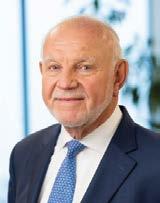
Paid Family Leave…citing the positive benefits on physical health, mental well-being and stability for the entire family, workers are increasingly looking for companies that provide women with maternity leave and men with paternity leave.
Paid Time Off…employees continue to seek additional time off from work to reduce stress and recharge to maintain health and wellbeing. This actually has the potential to benefit employers in addition to the
employee as the relaxation and clear mind attained through time off often leads to a higher level of employee morale and increased productivity.
The Chester County Bar Association offers its members access to My Benefit Advisor as a solution for employee benefits, including voluntary offerings. For more information about My Benefit Advisor, visit our website at ccba.mybenefitadvisor.com or contact Christopher Sloane at (610) 684-6933.
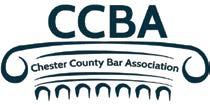
Having just adjusted to the Setting Every Community Up for Retirement Enhancement (SECURE) Act1 and its significant changes to retirement accounts, estate planners and clients alike had concerns when an updated version of the Act was adopted a mere three years later. The updated Act, aptly named SECURE 2.0, became law as part of the Consolidated Appropriations Act, 2023.2
Some of the biggest changes brought about by the original SECURE Act for estate planners and their clients involved required minimum distributions (RMDs). First, SECURE increased the beginning age for RMDs to 72 (originally 70 ½). Next, SECURE eliminated the “stretch” for inherited retirement accounts. Prior to SECURE, when a beneficiary inherited a retirement account, the taxable distributions could be “stretched” over the beneficiary’s life expectancy. Post-SECURE, for most beneficiaries, except for “eligible designated beneficiaries,”3 the balance of the account must be withdrawn within 10 years of the retirement account owner’s death.
With SECURE 2.0, the changes (at least from an estate planning perspective) are largely positive. Here is an overview of the most important changes for estate planners to share with their clients:

1. Clarification on RMDs. While SECURE brought about the 10-year rule, it did not clarify whether beneficiaries had to take a distribution each year, or just withdraw the balance by year 10. SECURE 2.0 makes clear that required distributions must be taken each year and the entire balance must be withdrawn by year 10.
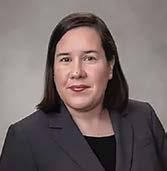
2. Increased age for RMDs. SECURE 2.0 increases the age for RMDs to 73 (for anyone turning 73 after 12/31/22). In 2033, the age will be increased even further to 75.
3. Decreased Penalties. Pre-SECURE 2.0, there was an excise tax of 50% due to failure to receive an RMD. This amount has been decreased to 25% and there may be circumstances where the excise tax is lowered to 10%.4
4. Special Needs Trusts With Charitable Beneficiaries Qualify. Prior to SECURE 2.0, a special needs trust with a charitable organization as remainder beneficiary, which was named as a beneficiary of a retirement account, would not qualify as an “eligible designated beneficiary” (even though a disabled individual would be considered eligible if the sole beneficiary of the trust or a named beneficiary), and therefore the balance would need to be withdrawn within 10 years. Post-SECURE 2.0, the trust will still be considered an eligible designated beneficiary, even with a charitable organization as a remainder beneficiary, and the balance will not have to be withdrawn within 10 years.
5. Unused 529 Plans Have New Life. Starting in 2024, 529 plans which were established at least 15 years prior may be rolled into a Roth IRA, established for the beneficiary of the 529 plan, without penalty. There is a lifetime cap of $35,000 and an annual contribution limit (currently $6,500).
1The SECURE Act was signed into law by President Donald Trump on December 20, 2019. 2SECURE 2.0 was signed into law by President Joseph Biden on December 29, 2022. 3Eligible designated beneficiaries include spouses, minor children, or disabled beneficiaries.
4 The excise tax may be lowered to 10% when the failure is corrected by the end of the second taxable year after the RMD should have been made.
 BY THE CHESTER COUNTY COMMUNITY FOUNDATION
BY THE CHESTER COUNTY COMMUNITY FOUNDATION
In Chester County, as in the rest of the U.S., COVID quickly heightened the disparities in earning power, education, technology, health care and justice. A stressed, strained nation is bursting with frustration, ideas, and possible solutions. Some voices are heard too loudly, and others barely at all. What’s a person to do?
Philanthropy, at its core, is love of humankind in all its diversity. At the Community Foundation, we know that varied perspectives and an inclusive culture inspire innovative, creative solutions to the complex issues of a changing – and increasingly diverse – world. We aim to create a future where all people have the opportunity and ability to achieve what they want for their lives.

Sam Stretton, Esq., of West Chester has been immersed in civil rights and social justice since 1973. Sam is passionate: “The fight for social justice is far from over. It’s upsetting that in Chester County, the land of Quaker heritage and the Underground Railroad, racial prejudice still exists.”

Sam recounts his first Chester County civil rights case: “In 1985 Wilma Ford, a very prominent civil rights leader, brought three major civil rights activists into my West Chester office: Charles Melton, Dr. W.T.M. Johnson and Norman Bond. They opened my eyes to Chester County’s discrimination against Black people. For our first case, I filed a suit alleging 150 years of voter discrimination. As a result of our hard-earned win, West Chester created a ward system to replace voting at large, so that non-whites could have a reasonable chance of being elected. Subsequently in 2000, we win the right of
convicted felons to vote in Pennsylvania.
Sam has also challenged the court and jury system. Sam notes: “In too many cases Black defendants face all-white juries, all-white prosecutors, and all-white defense lawyers. We have six law schools within 30 miles graduating hundreds of law students every year, some of them very qualified Black and Hispanic new lawyers. It makes no sense that Chester County has so few Black prosecutors, Black lawyers and public defenders; and jurors.”
Sam is clear: “In housing, education, voter suppression, and the legal system, it’s tragic to see the discrimination that still exists. There’s still too much racism in Chester County; these days it’s just more subtle.”
John McKenna, Esq., of MacElree Harvey in West Chester deeply believes, “To whom much is given, much is required” and “Each of us has a role in helping open opportunities for others.”
A Board member of the Community Foundation, John encouraged his law partners to create the MacElree Harvey Ltd. Technology Fund for Economically Disadvantaged Children.
John explains that MacElree Harvey Ltd. wants to help children in economically marginalized communities have reliable and consistent access to computers, software, internet access and digital tools that will enable them to succeed in an ever-evolving tech world. “This is one of our ways to Stand for Justice,” John enthuses.
Continued on page 30
www.chescobar.org
Continued from page 29
An associate attorney at Larmore Scarlett in Kennett Square, Emily Abels, Esq., co-chairs the Community Foundation’s IDEA Council. Meeting monthly, 30 highly experienced, diverse community members from throughout Chester County share best practices and activities they are spearheading to promote and support Inclusion, Diversity, Equity and Access.
The IDEA Council has helped the Community Foundation ramp up in several areas, including its Community Conversations. “It is important for the Community Foundation to serve as an ally and an advocate. The monthly lunchtime Zoom Conversations are intense, thoughtful, lively discussions that shed new light on some sensitive social equity topics,” explains Emily.
“Whether the discussion is related to healthcare access, environmental justice, food insecurity, disabilities, racism, or discrimination, there are always new vantage points and perspectives to help deepen understanding and build bridges. We have a long way to go. But I am proud of the work of the IDEA Council and the progress made so far.”

Please join us. Whether it’s
• grantmaking via legacy funds
• becoming more aware and connected via our monthly Community Conversations
• serving on nonprofit committees and boards via GetOnBoard, the Community Foundation connects people who care, with causes that matter Now & Forever.
Questions? Contact:
Winnie Sebastian, Esq., Board Chair
Karen Simmons, President/CEO

Jason Arbacheski, CAP, Director of Gift Planning and Stewardship
Chester County Community Foundation
28 West Market Street, West Chester, PA 19382 (610) 696-8211 | info@chescocf.org | www.chescocf.org

What is your favorite way to spend your free time? Catching up with friends, spending time with family, taking walks/hikes, playing baseball, swimming, leading services at my synagogue, listening to music, singing, dancing, spending time at the shore.
Where do you live? West Chester, PA.
What was your first job? Tutoring students in Hebrew language, Jewish history and Jewish liturgy.


What word best describes you? Engaging.
What is your greatest extravagance? Traveling to and vacationing with the family in Alaska, Grand Canyon and Israel.
What is your favorite food? Chile.

Who is the person you are most interested in meeting? Steven Spielberg. What was the last book you read? “1421 The Year China Discovered America” by Gavin Menzies; fascinating book!
What is your favorite TV Show? Seinfeld.


What is your favorite website? The news site, www.msn.com.
What would you be if you were not a lawyer? Most likely a teacher in Judaic literature, Dead Sea Scroll research and comparative religion.
Where would we find you on a Saturday afternoon?
Taking walks, spending time with my family, reading all kinds of books, especially ones on world history, U.S. history, Jewish history, biographies, aircraft, space travel, physics and science in general.
What is your favorite vacation destination? Grand Canyon.

What goals do you still have that you have not achieved yet? Teaching either intellectual property law and/or Jewish history/Dead Sea Scroll literature on a full-time basis.
What is a little-known fact about you? I was born in Newark, NJ and was raised in Newark, DE.
What would you be if you were not a lawyer? Probably a behavioral communication researcher.
What is something people would be surprised to hear about you? I used to compete in ballroom dancing.
What is your favorite thing about the bar association? The opportunities to participate in a variety of CCBA activities, along with meeting/ speaking with the friendly members of the CCBA.

